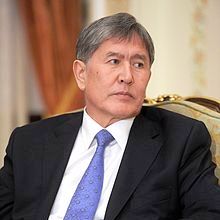Since his removal as Russian Minister of Finance in September 2011, Aleksey Kudrin has repeatedly stated his disagreement with the government’s economic policies. Indeed, his objection to state spending priorities was one of the principal reasons for his departure, and it remains one of the central obstacles to his return to government service. Specifically, as Kudrin noted in October 2011, if he determined budget policy he “would increase spending less on military needs than on health care and education.” In April 2012 he stated that “budget expenditures on defense and national security of Russia should be lowered … in favor of road construction, education, and health care.” Similarly, in November 2012 he said that money for other needs should be “redistributed from the siloviki,” and that the military did not need the amount of money which is being spent on them, arguing that the military rearmament program should be stretched out.
This memo investigates Kudrin’s claim about Russia’s guns vs. butter dilemma. I conclude that Kudrin is basically right. Indeed, the problem is even more acute than a guns vs. butter dilemma—it’s a guns vs. guns vs. butter vs. butter dilemma. Russia will have a hard time meeting all its future obligations—external defense, internal security, and a range of domestic social and economic needs, such as health care, education, and pensions —unless Russia returns to the high growth rates that Vladimir Putin enjoyed during his first presidency. It is unlikely that Putin will be that lucky twice; if he can somehow pull it off, he will have earned his reputation as a great manager. The next section of the memo provides some basic data on Russia’s defense burden, which sets up the evaluation of Kudrin’s complaint in the final section.
Kudrin’s Complaint: Does Russia Face a Guns vs. Butter Dilemma?
PONARS Eurasia Policy Memo No. 254
by Brian D. Taylor
June 2013










